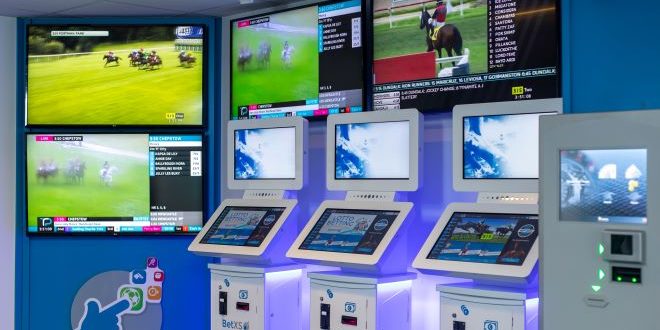The Irish retail betting landscape has come up against its fair share of challenges in recent years, with the introduction of a 2% tax on turnover over €2.5 million, the absence of a central gambling regulator and most recently the closure of all non-essential shops.
But despite these hurdles, fixed costs have remained at a steady level (and in some cases, have increased).
Colm Finlay is the Founder / Director of BetXS – a subsidiary of Orchadia Systems. He told SBC News that between 85-90% of outgoings for ‘traditional’ shops are fixed, however an increased focus on variable costs can help bring a ‘breath of fresh air’ to the land-based sector.
He said: “Needless to say that the self-service, staffless shops operate on a much lower cost basis when compared to their traditional, manned shop counterparts. What’s happened in Ireland and the UK over the last 10 years or so is that as fixed costs have increased, certain towns and villages no longer have the population base for which to support those shops with high fixed costs.
“If you look over here in Ireland, it’s not permissible to do single-manning because you’re expected to give your staff breaks after every three of hours of work done. After five hours of work, they are then permitted to take a full hour lunch break. The effect of that is that you can’t really operate a shop on a single-man basis.
“When you then apply that to the quota of hours that a betting shop can open over the week, you’d really need four or five labour units to keep a betting shop open. From an Irish perspective that’s €100,000 – €110,000 in costs which are fixed and have to be serviced.
“When you then bolt on the €47,000 in fees to media rights holders, the money that has to be paid to landlords and all of the other fixed costs associated with a manned shop, your fixed costs are exceeding the €200,000 mark with a few variable costs.”
He shared that a shift towards automation and “use of efficient and reliable technology” can help alleviate any risks of human error – with costs equating to approximately 35-40% of traditional shops. These costs, Finlay continued, are expected to drop even further through negotiations with rights holders such as SIS and TRP.
“With BetXS operating between 35-40% of the cost basis, with further decreases to those levels when we have a proper revenue-share / turnover-based arrangement in place with the rights holders, those costs will drop even further,” he continued.
“What will then happen is that these remote communities can get their betting shops back. From a horse racing perspective, that’s great news. The expected revenue in terms of incomes for horse racing and for the Exchequer has dropped to zero. But we’re going to turn those zeros into something.”
Now open in Rathcoole, Kilbeggan and Ballivor, all BetXS shops are run on a remote basis – with CCTV, shutters, security systems, displays and lights all controlled using a fully automated solution – and all bets placed and settled via self-service betting terminals (SSBTs).
But with no carriage of goods, Finlay believes that the Irish land-based sector could wholly benefit from the roll-out of automated betting shops, bringing with it a whole host of benefits for local communities.
He added: “We don’t have a carriage of goods. Betting shops are so well suited to this model. Say if I was to have a shop in Cahersiveen in the ring of Kerry, that shop just has to open up tomorrow – I don’t have to bring any horse racing down there in a horsebox, unlike grocery shops I’m not having to unload a refrigerated lorry full of goods.
“The broadband carries the content from whatever race track or football ground and brings it into these remote locations. Having no carriage of goods is great and it makes betting shops much more suited to automation – it makes betting shops much more viable.”
When it comes to responsible gambling measures, the BetXS Founder addressed the need for advanced facial recognition technology and artificial intelligence to identify and verify the age of a customer.
The SSBTs feature high-resolution biometric cameras which require a one-time sign up for bettors which appear to be under the age of 25.
Finlay also highlighted the cross-network self-exclusion system, with that data then distributed across all Orchadia Systems shops – something which can help reduce levels of problem gambling.
“Safer gambling is where I truly believe that Orchadia Systems is in a completely different league to the incumbent way of doing things,” he said. “From my experience as an experienced betting shop worker, I’ve received those self-exclusion forms from customers who no longer wish to bet. It’s not a very nice thing for the customer to have to endure.
“We used to hand out an A4 sheet of paper where bettors had to fill in their name, address etc. They then had to attach a copy of their passport photo which was stapled to the form. This would disencourage people from submitting these details. It’s a very intrusive thing to do – especially given how tough it is for people to recognise that they have a problem gambling issue.
“At Orchadia Systems, players can self exclude via their mobile application. They don’t need to speak to anyone. What is better is that this is then subsequently deployed to a network of shops operating on the Orchadia Systems platform.
“That means a customer could call into a betting shop in John o’Groats, self exclude, jump on an airplane to Land’s End, walk into a betting shop and will also be instantaneously self-excluded.”
Reaffirming his belief that responsible gambling is at the front and centre of Orchadia Systems’ operations, Finlay went on to discuss the company’s plans to introduce budgetary, time and sport constraints.
He explained: “Where we step it up even further is that we’re not just limited to self-excluded. In our development pipeline, we’re working on introducing budgetary constraints. If a player is paid on a Friday evening, they go to the pub and try back a few winners – but by Saturday morning, all of their wages could be spent.
“What we’re planning to do is enable the customers to set constraints – whether that be budget, time, or even sport. These are the kind of problem gambling tools that the industry really needs.
“Self-exclusion is not really a viable solution under the current system. Orchadia Systems aims to change that by bringing a proper, meaningful safer gambling environment to punters all over Ireland, the UK and on a global scale. We’re not stopping here in Ireland, we’re taking this even further – that’s where our aspirations are.”
With it increasingly likely that fixed costs for bookmakers will increase in 2021 in the wake of the pandemic, the prospect of automated betting shops can act as a cheaper, easier way for betting operators to reach their audience.
From a bettor’s perspective, these shops can remodel the entire customer journey, with increased opening times and easy-to-use SSBTs meeting the needs of the tech-savvy punter.
So as the retail sector looks to bounce back from the events of 2020, staffless, automated betting shops could become the ‘new normal’.









